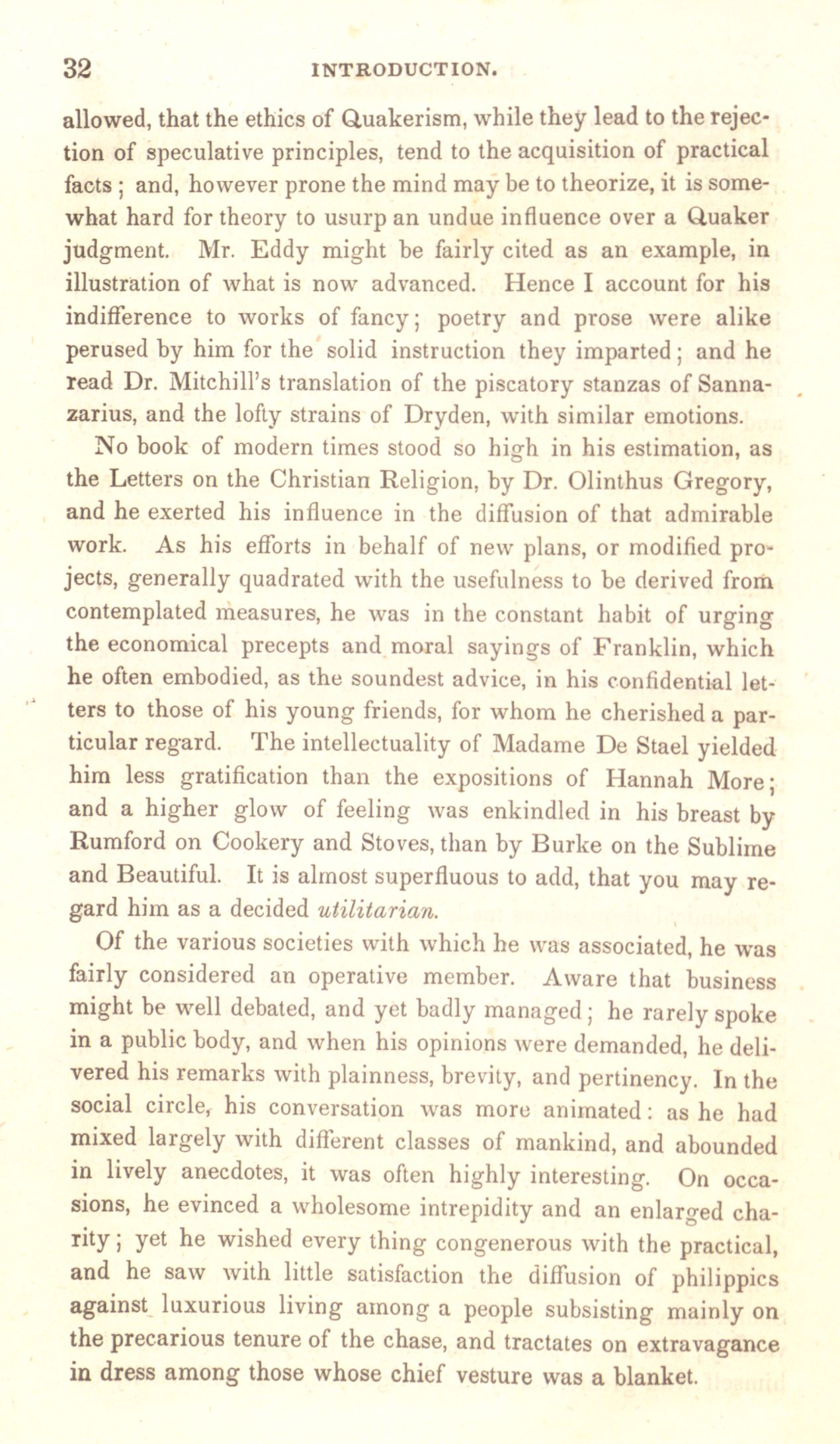allowed, that the ethics of Quakerism, while
they lead to the rejec-
tion of speculative principles, tend to the
acquisition of practical
facts ; and, however prone the mind may be
to theorize, it is some-
what hard for theory to usurp an undue
influence over a Quaker
judgment. Mr.
Eddy
illustration of what is now advanced. Hence I account for his
indifference to works of fancy; poetry and prose were alike
perused by him for the solid instruction they imparted; and he
read Dr. Mitchill's translation of the piscatory stanzas of Sanna-
zarius, and the lofty strains of Dryden, with similar emotions.
No book of modern times stood so high in his estimation, as
the
Letters on the Christian Religion, by Dr. Olinthus Gregory,
and he
exerted his influence in the diffusion of that admirable
work. As
his efforts in behalf of new plans, or modified pro-
jects,
generally quadrated with the usefulness to be derived from
contemplated measures, he was in the constant habit of urging
the
economical precepts and moral sayings of Franklin, which
he often
embodied, as the soundest advice, in his confidential let-
ters to
those of his young friends, for whom he cherished a par-
ticular
regard. The intellectuality of Madame De Stael yielded
him less
gratification than the expositions of Hannah More;
and a higher
glow of feeling was enkindled in his breast by
Rumford on Cookery
and Stoves, than by Burke on the Sublime
and Beautiful. It is
almost superfluous to add, that you may re-
gard him as a decided
utilitarian.
Of the various societies with which he was associated, he was
fairly
considered an operative member. Aware that business
might be well
debated, and yet badly managed; he rarely spoke
in a public body,
and when his opinions were demanded, he deli-
vered his remarks with
plainness, brevity, and pertinency. In the
social circle, his
conversation was more animated: as he had
mixed largely with
different classes of mankind, and abounded
in lively anecdotes, it
was often highly interesting. On occa-
sions, he evinced a wholesome
intrepidity and an enlarged cha-
rity; yet he wished every thing
congenerous with the practical,
and he saw with little satisfaction
the diffusion of philippics
against luxurious living among a people
subsisting mainly on
the precarious tenure of the chase, and
tractates on extravagance
in dress among those whose chief vesture
was a blanket.

